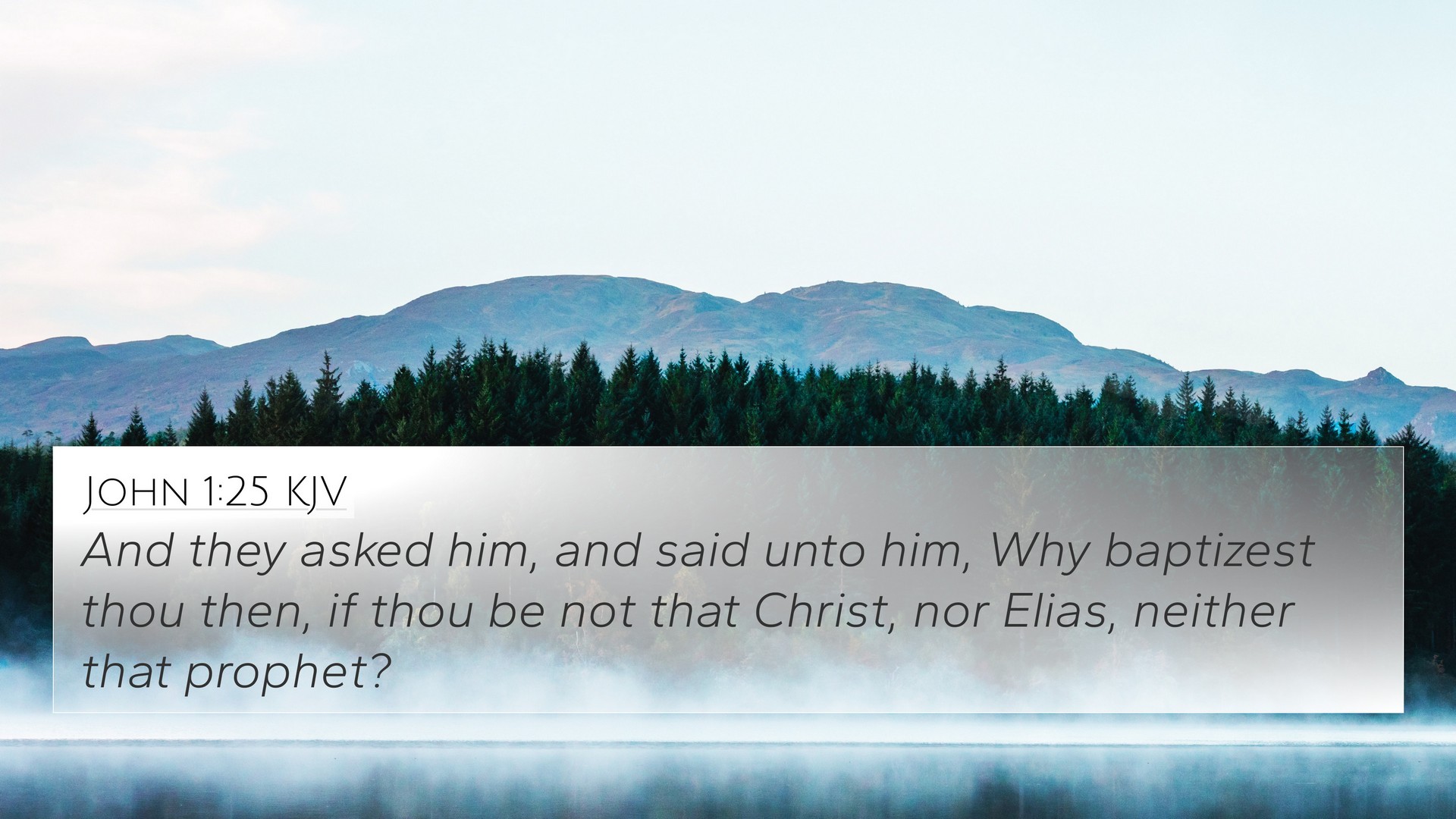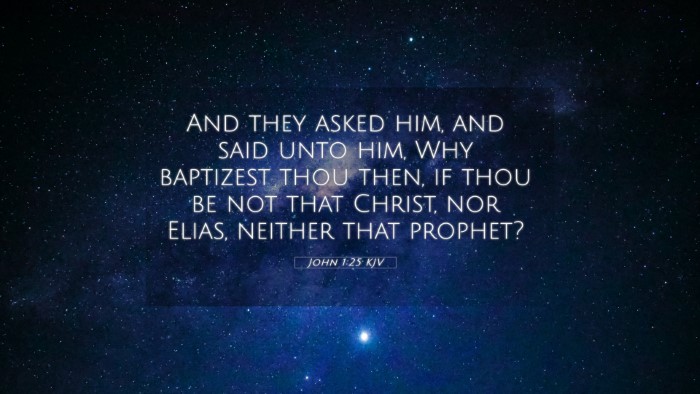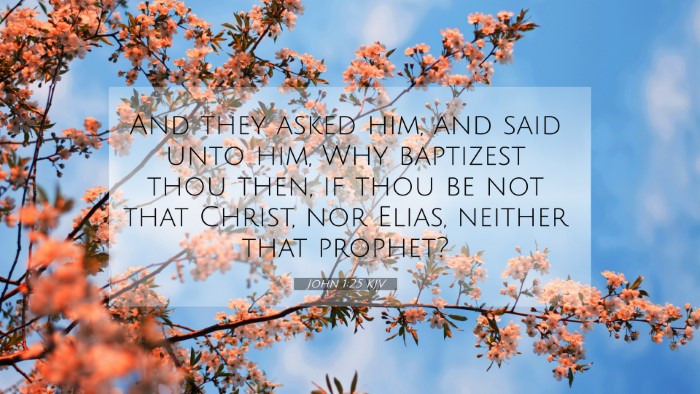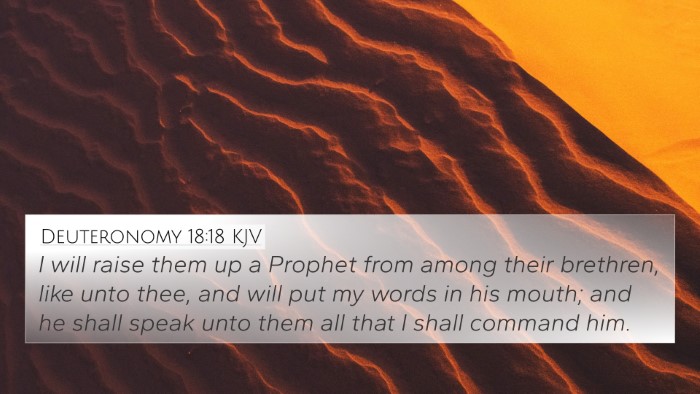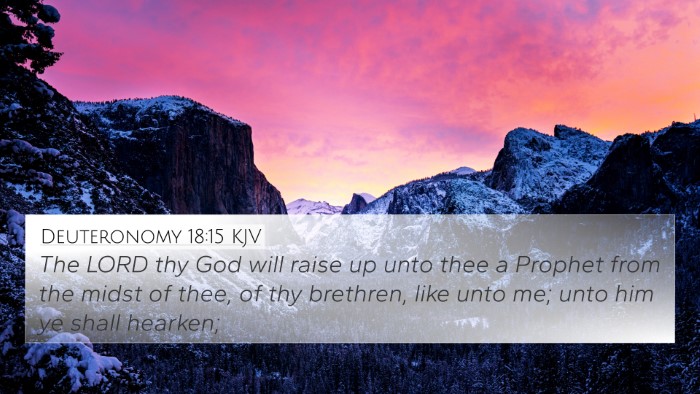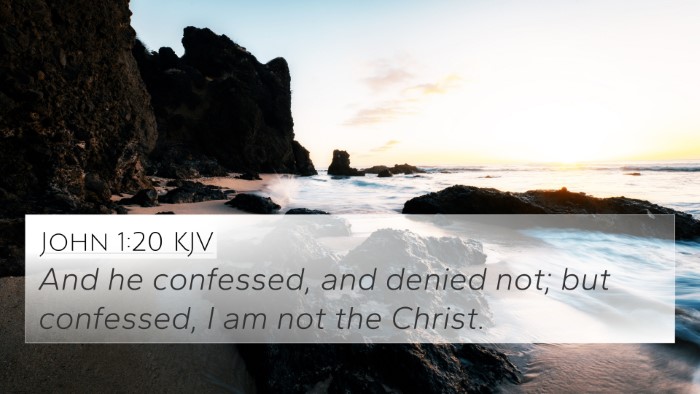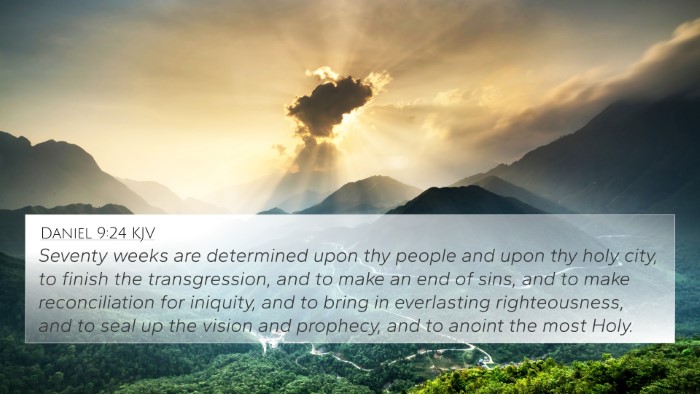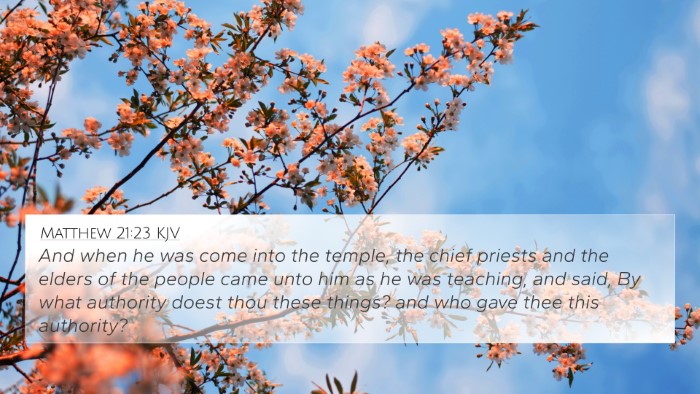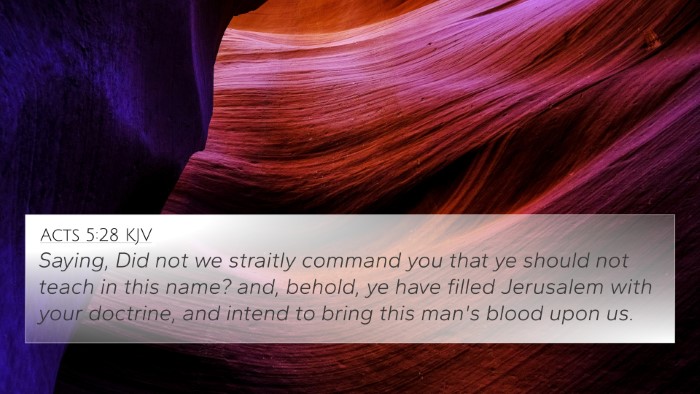Understanding John 1:25
Verse (John 1:25): "And they asked him, and said unto him, Why baptizest thou then, if thou be not that Christ, nor Elias, neither that prophet?"
Overview: In this verse, the religious leaders question John the Baptist about his authority and purpose in baptizing the people. They express confusion and demand clarity since John is not the Messiah, not Elijah, and not the prophet foretold. This inquiry highlights the expectations of the Jewish people regarding prophetic figures and their roles.
Commentary Insights:
-
Matthew Henry's Commentary:
Henry points out the significance of baptism in John's ministry as a preparatory act for the upcoming Messiah. He notes that John's role was to bring people to repentance, thereby creating a need for the coming Christ. The questioning reflects the spiritual leaders' lack of understanding and recognition of the Messiah's arrival.
-
Albert Barnes' Commentary:
Barnes emphasizes the misunderstanding of the Jewish leaders. They expected the Messiah, Elijah, or a prophet to appear and to justify John’s ministry. Their inquiry signifies a lack of faith and recognition of God’s plan through John as the forerunner. Barnes stresses the importance of faith in recognizing divine authority and purpose.
-
Adam Clarke's Commentary:
Clarke provides insight into the significance of each title mentioned: "Christ," "Elias," and "that prophet." He notes that these figures hold great expectations in Jewish thought. John’s rejection of these identities prompts a deeper understanding and necessitates a closer examination of his role as a divine messenger.
Key Themes:
- Authority and Recognition: The questioning of John's authority underscores the theme of divine recognition where witnesses are needed to discern God's agents.
- Prophetic Fulfillment: The inquiry sheds light on the prophetic anticipation within Judaism that sets the stage for Christ's ministry.
- Preparation for Christ: John's baptism was not merely a ritual but a preparation for the coming of Jesus Christ, emphasizing repentance and the need for spiritual readiness.
Cross-References:
- Matthew 3:11: John's declaration about baptizing with water vs. the coming one who will baptize with the Holy Spirit.
- Luke 1:17: Describes John's role in turning the hearts of the fathers to the children and preparing the way for the Lord.
- Isaiah 40:3: This verse prophesies a voice calling out in the wilderness, identifying John’s ministry.
- Malachi 4:5: The prophecy about Elijah's return before the great and dreadful day of the Lord, linking John's role as the fulfillment of this prophecy.
- John 3:28: John’s affirmation of his role as a friend of the bridegroom who rejoices in the bridegroom's voice, clarifying his position relative to Christ.
- Acts 19:4: Paul acknowledges John's baptism of repentance, highlighting continuity in John's ministry and the apostolic teachings.
- Mark 1:8: Similar to Matthew 3:11, it affirms that John baptizes with water, but Jesus will baptize with the Holy Spirit.
- John 1:20: Earlier in the chapter, John explicitly denies being the Christ, adding more clarity to the inquiry in verse 25.
- John 7:40-41: Discussion among the crowds regarding Jesus as the prophet and the Christ, showcasing ongoing confusion over identities.
- Acts 10:37-38: Peter’s reflection on John’s ministry preceding Jesus provides another link between how the early church viewed John in relation to Christ.
Tools for Cross-Referencing:
To delve deeper into the relationships and connections found within the Bible, the following tools can enhance your Bible study experience:
- Bible Concordance: A comprehensive index of biblical words and phrases that allows you to locate passages quickly.
- Bible Cross-Reference Guide: Guides that help highlight connections between various scriptures based on themes or keywords.
- Cross-Reference Bible Study: Methods for effectively utilizing cross-references during personal or group study sessions to explore scriptural links.
- Bible Reference Resources: Authenticated materials that facilitate deeper understanding of biblical texts and their interconnections.
Conclusion:
John 1:25 serves as a pivotal moment in understanding the ministry of John the Baptist and the transitional period of the coming Messiah. Through exploring variations of cross-references and insights from esteemed commentaries, we achieve a clearer picture of the thematic and prophetic connections that link this verse to the broader narrative of the Scriptures. The discussions about identity, authority, and prophetic fulfillment in Jewish expectation allow modern readers to grasp the profound implications of this textual inquiry.
